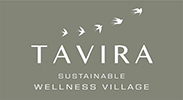5 HECTARE VILLAGE FARM
In Portugal, the Mediterranean Diet represents an extremely important historical and heritage asset. But far beyond that, the Mediterranean Diet is still a reference of diversified eating and sustainable production inherited from its ancestors. The Mediterranean food pattern is based on the consumption of products such as wheat, wine, olive oil, fruit, vegetables, and legumes. And in the particular case of Portugal, fishery products, such as fish, molluscs and shellfish.
With this in mind a key component of the community will be the ‘Village Farm’, helping in a small, but vital way, to provide the residents with home grown produce.
In addition to every small green space, including roof terraces and pocket gardens at the village itself, the community will have access to its own 5 hectares of agricultural land directly south of the village.
The farm, adjacent to the nature reserve will primarily be devoted to organic produce, consideration will also be made to animals and grazing, and chickens.
The organic farm supports the philosophy of the entire Wellness Village concept, we know its produce is best for our health, and in fact, on average, there is 50% more plant, insect and bird life on organic farms.


ria formosa eco discovery park (32 hectares)

Interpretation visitor centre
Cycle routes
Jogging trails
Bird watching hides
Guided eco-tours
Host events + workshops

The Village sits on the doorstep of the Ria Formosa, a world renowned eco-wetland system. A proposed interpretation visitor centre, and nature based tourism hub, as well as other leisure and sports activities, will form part of Tavira Village’s wider lifestyle offering’.
The aim of the Ria Formosa Discovery Hub is to develop visitor attractions that successfully support the conservation of the Ria Formosa National Park and local economy wellbeing of Tavira.
The World Tourism Organisation eloquently states, ‘It is in our hands to transform tourism and that emerging from COVID 19 becomes a turning point for sustainability’.
The global pandemic has undeniably caused major socio-economic impacts; however, it has also raised awareness that sustainability must be a key element within our daily lives and economic activities. The tourism sector must increase its resilience and create a sense of solidarity and connectivity amongst all stakeholders within the industry.
The objectives of the Ria Formosa Discovery Park are therefore to:
1.Build environmental and cultural awareness for the Ria Formosa National Park
2. Establish partnerships with local stakeholders to develop new tourism offerings and support local businesses.
3. Offer nature -based tourism activities on the site (Birdwatching)
4. Provide health and wellbeing facilities and promote leisure and sport activities on site.
Green Spaces and Roof Gardens

Optimisation of space
Improved air quality, toxin levels and ventilation
Optimal thermal comfort
Natural lighting
Acoustic comfort
Internal + external views onto nature
Use of natural materials, textures, patterns + colours
Incorporation of recuperative space

BIOPHILIC DESIGN
‘An approach to architecture that seeks to connect building occupants more closely to nature. Biophilic designed buildings incorporate things like natural lighting and ventilation, natural landscape features and other elements for creating a more productive and healthy built environment for people’.
‘Biophilic design is not just about creating green walls and roof gardens, it is also about the quality of spaces, connectivity and accessibility to external views and use of indoor/outdoor spaces. It’s about re-connecting man made elements with natural environments and systems to help improve lifestyle, health and well-being’
Allotments and Kitchen Gardens

Local meetings / social hub
Outdoor cinema
Kids interactive eco-play
Children’s allotment
Family relaxation
Community events
Organic community farm
Wellness focused
Active + social living
Micro gardens
Healthy living

All residents will have the opportunity to engage with the community’s own growing co-operative in the Village farm, providing access to the neighbourhood’s organically grown produce.
Residents can either be directly involved in the production process, or merely just take advantage of produce grown by, and for, the village. In addition, other locally sourced products will be available as part of an initiative to significantly reduce the carbon footprint of all food and take advantage of the great Mediterranean Diet and produce famous in the region.


